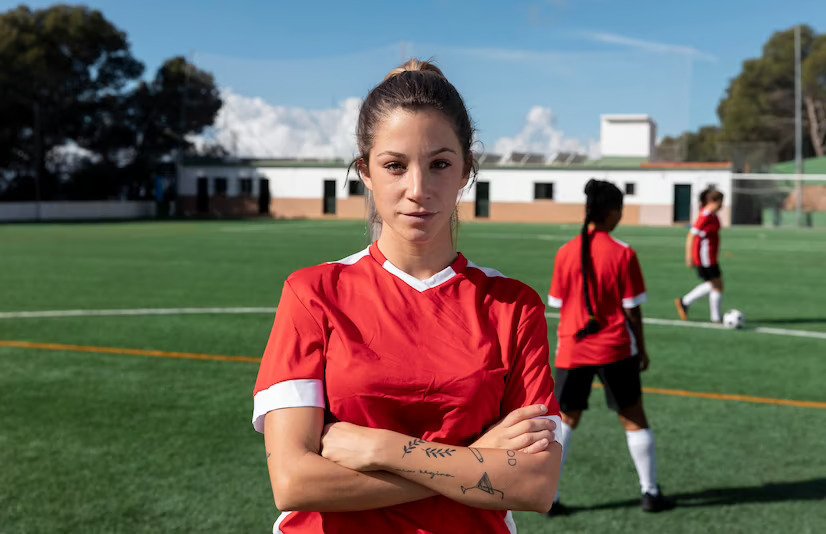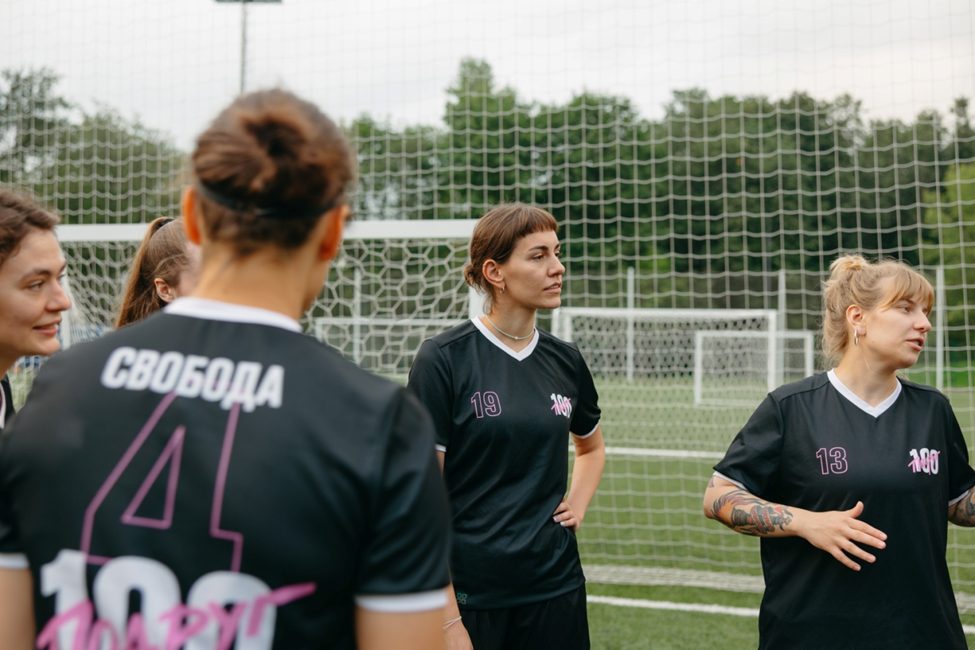The Lack Of Female Football Coaches: Quick Explanation
6 Mins Read
Published on: 10 April 2023
Last Updated on: 01 August 2024

toc impalement
The popularity of football, to some extent, can be compared to that of online casinos offering free spins no deposit required keep your winnings. Yet, when it comes to football coaching, women are significantly underrepresented.
Despite the increasing number of women’s football teams and players, there is still a lack of female football coaches at both amateur and professional levels. This gender imbalance in football coaching has significant consequences on the development of women’s football and gender equality in general.
Eye-Opening Statistics on Female Football Coaches
According to a report by FIFPro, the global representative organization for professional football players, only 6% of registered coaches in women’s football are female. The numbers are even worse in men’s football, where women make up only 3% of registered coaches.
At the 2019 Women’s World Cup, only nine of the 24 teams were coached by women. In addition, only one of the top 10 ranked women’s national teams at that time had a female head coach.
Reasons Why There Are Few Female Football Coaches Worldwide

There are few female coaches worldwide, and this is true. However, there are also some good (or bad, depending on how you look at it) reasons for it. Mainly:
- Gender stereotypes and bias
- Lack of mentorship
- Lack of diversity in hiring
- Limited pathways and opportunities
- Work-life balance
Gender Stereotypes and Bias
One of the main reasons for the lack of female football coaches is the societal stereotype that football is a male-dominated sport. Women who want to coach football face discrimination and lack of support, making it difficult to break into the profession. The male-oriented culture in football creates barriers to entry for women, which can be difficult to overcome.
Lack of Mentorship
Moreover, there is a lack of enough role models for women in football coaching. Women interested in coaching may not see other women in leadership positions and may not have access to mentors and networks to help them break into the profession. This lack of representation makes it difficult for women to envision themselves as football coaches, which perpetuates the cycle of gender imbalance.
Lack of Diversity in Hiring
Football organizations often hire coaches based on their networks and connections, which can perpetuate the status quo and limit opportunities for women. Without deliberate efforts to diversify hiring practices and increase the pool of qualified female candidates, women may continue to be shut out of coaching positions.
Limited Pathways and Opportunities
Women’s football is still a relatively young sport. Actually, the first Women’s World Cup was held in 1991. That is quite recent when you think of the era we are in.
As a result, there are limited pathways and opportunities for women to progress as coaches. Women’s football programs are often underfunded and under-resourced, making it harder for women to access the training and support they need to advance their coaching careers.
Work-Life Balance
Furthermore, the lack of female representation in football coaching can also be attributed to the difficulties that women face in balancing their personal and professional lives.
Football coaching is often a demanding and time-consuming job that requires long hours and extensive travel, which can make it difficult for women who are also caregivers or have other family responsibilities.
What Does This Imbalance Portray?

The lack of female football coaches has significant consequences for the development of women’s football. While women’s football is still a relatively young sport, it is crucial to have diverse voices and perspectives to help it grow and develop.
The underrepresentation of women in coaching means that women’s football is being developed and shaped primarily by men. This can lead to an imbalance in the Way the game is played and coached, ultimately limiting the growth and potential of women’s football.
Also, when there are no women in football leadership positions, it sends a message that women do not belong in football. This can discourage women from participating in the sport and limit their opportunities to succeed. It also perpetuates harmful gender stereotypes that limit women’s potential in all areas of life.
Popular Female Football Coaches in the World
Despite these challenges, there are some positive developments in the world of female football coaching. Some organizations and clubs are beginning to recognize the value of diversity and inclusion and are actively seeking out female coaches to join their ranks.
These women coaches have shown they are just as capable of leading successful football teams as their male counterparts. Their success has helped to inspire more women to pursue coaching careers in football.
Here are some popular women football coaches in the world:
- Jill Ellis
- Sarina Wiegman
- Vera Pauw
- Pia Sundhage
- Asako Takakura
- Hope Powell
- Carolina Morace
Jill Ellis
Ellis is an English-American football coach who coached the United States women’s national soccer team from 2014 to 2019. She led the team to two FIFA Women’s World Cup titles in 2015 and 2019.
Sarina Wiegman
Wiegman is a Dutch football coach who currently coaches the England women’s national football team. She led the Netherlands Women’s Football National team to the European Championship title in 2017.
Vera Pauw
Pauw is a Dutch football coach who has coached several women’s national teams, including the Netherlands, Russia, and South Africa. She led the South African women’s national team to their first-ever appearance in the Women’s World Cup in 2019.
Pia Sundhage
Sundhage is a Swedish football coach who has coached the United States women’s national soccer team and the Swedish women’s national football team. She led the United States women’s national soccer team to two Olympic gold medals in 2008 and 2012.
Asako Takakura
Takakura is a Japanese football coach who coached the Japan women’s national football team from 2016 to 2021. She led the team to the AFC Women’s Asian Cup title in 2018.
Hope Powell
Powel played for the England women’s national football team and later coached the team as well. She has also coached teams in the United States and Jamaica.
Carolina Morace
Morace played for the Italian women’s national football team and later coached the team as well. She has also coached teams in Canada and Trinidad and Tobago.
Addressing the Gender Gap in Football Coaching

Obviously, the gender gap in football coaching must be addressed.
Here are some suggestions that can help to get more women involved in football coaching:
Increase Visibility
Women need to see more female coaches in prominent positions to visualize themselves as potential coaches. Therefore, creating more opportunities for women coaches to work with professional and youth teams could increase visibility and inspire others to pursue a coaching career.
Create Pathways for Female Coaches
Women interested in becoming football coaches should be given clear pathways to follow. This can include providing coaching courses, mentorship programs, and other training opportunities specifically designed for women.
Celebrate Successful Female Coaches
Highlighting successful female coaches can help inspire more women to pursue coaching roles. Celebrating their achievements can help showcase the potential and possibilities of women in football.
Address Gender Bias
Addressing gender bias in football is critical to encouraging more women to participate in coaching. This includes challenging stereotypes and providing equal opportunities for women in all aspects of football.
Engage Female Role Models
Female role models can inspire and motivate women to pursue coaching careers. Engaging successfully female coaches, players, and other football professionals can help inspire more women to become coaches.
Support Female Players
Encourage girls to participate in football at a young age and support them as they progress through the ranks.
For example:
| Vera Pauw | Played for the Netherlands women’s national football team. Later coached the team as well. |
| Jill Ellis | Played soccer at the collegiate level for the College of William & Mary. Later coached the United States women’s national soccer team to two consecutive World Cup victories. |
Develop a Supportive Community
A supportive community of female coaches can help women feel more comfortable and supported in their coaching roles. This includes networking opportunities, sharing resources, and collaborating on coaching strategies.
Final Thoughts
The lack of female football coaches is a significant issue that needs to be addressed. Women bring unique perspectives and experiences to coaching, which can help develop the sport in new and exciting ways.
To increase the number of female football coaches, there needs to be a concerted effort to break down the barriers to entry that women face. This includes supporting and mentoring women interested in coaching, creating more opportunities to gain coaching experience, and promoting women’s leadership in football at all levels.
Only by addressing the gender imbalance in football coaching can we create a more inclusive and equitable future for women in football and beyond.
Read Also:


















Comments Are Closed For This Article